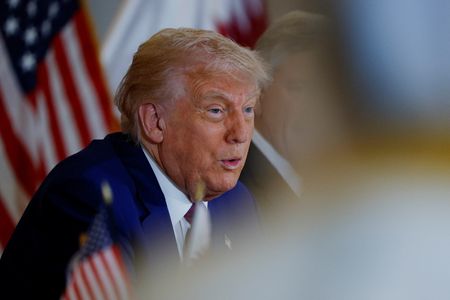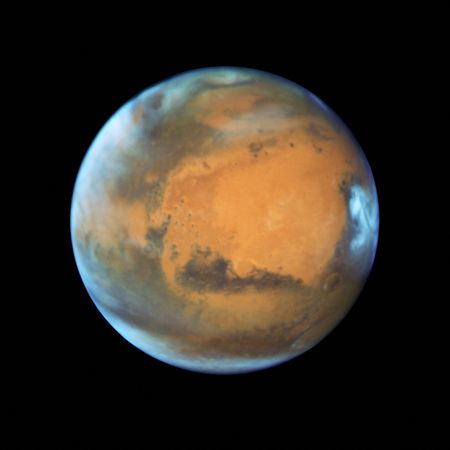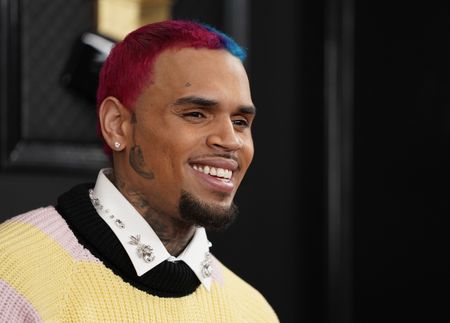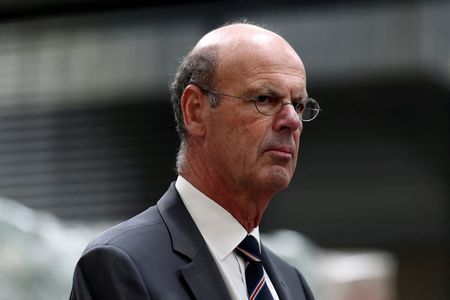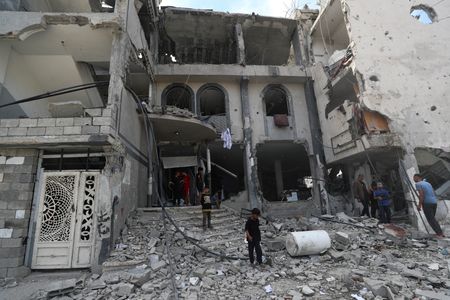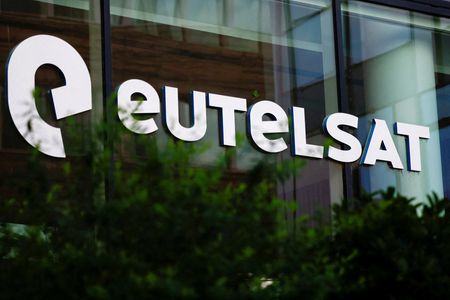By Fatos Bytyci and Edward McAllister
TIRANA (Reuters) – European leaders descend on Albania on Friday for a meeting sure to be dominated by the war in Ukraine, but small Balkan countries hope talk of EU enlargement will also feature at the European Political Community Summit.
The event, including the leaders of France, Germany and Britain, takes place as Ukraine and Russia are set to hold their first peace talks since the early days of the conflict. Other topics will include security, democracy and migration.
But it is also a pivotal time for Albania, one of Europe’s poorest countries with 2.4 million people which is still trying to shrug off the lingering impact of decades of stifling communist rule and join the European Union.
The country is bracing for Friday’s influx. Flights from Tirana’s small airport, which is undergoing a revamp amid a burgeoning tourist boom, may be disrupted by the extra air traffic, the airport said in a post on Instagram.
Traffic restrictions across the capital are expected to add to congestion on its already clogged ring road. Walking routes around the bustling centre, where the summit will take place in a massive new conference tent, will also be limited.
“When you see how far Albania has gone and holding such a meeting with EU and UK leaders it is pleasure to see that happening,” said Dritan Hoti, 46, who grew up in the last years of communism.
“Albania is moving in the right direction despite all the problems it faced.”
Before joining the EU, Albania must lose its reputation as a money laundering hub for weapons and drugs traffickers where a few live the high life and many live in poverty.
Political transparency is also important in the wake of a disputed election which Prime Minister Edi Rama officially won handsomely but which local prosecutors are investigating and the opposition has dismissed as fraudulent.
Opposition leader and former prime minister Sali Berisha has called for a peaceful protest during Friday’s summit.
Experts say Rama’s agreement to accept migrants from Italy, increase renewables output and open up the country to foreign investment – including that of U.S. President Donald Trump’s son-in-law Jared Kushner – have bolstered Albania’s chances of joining the bloc.
“The EU is looking for a success story,” said Andi Hoxhaj, a Balkan expert at King’s College London. “Albania and Montenegro could have a window of opportunity, as both countries are very small and it will not have any major impact or pressure on the EU.”
A lot depends on how much Balkan countries want to join. Hoxhaj said the EU has lost some credibility in the region in part for making accession so difficult.
Kosovo and Serbia also have EU aspirations, although a long-running dispute between those countries has slowed progress.
Kosovo is under EU sanctions for Prime Minister Albin Kurti’s role in stoking ethnic tensions in its northern region bordering Serbia. Meanwhile, Serbia’s President Aleksandar Vucic this week joined Moscow’s World War Two victory commemorations despite objections from Brussels.
(Reporting by Fatos Bytyci; Additional reporting by Andrew Gray; Writing by Edward McAllister; Editing by William Maclean)





